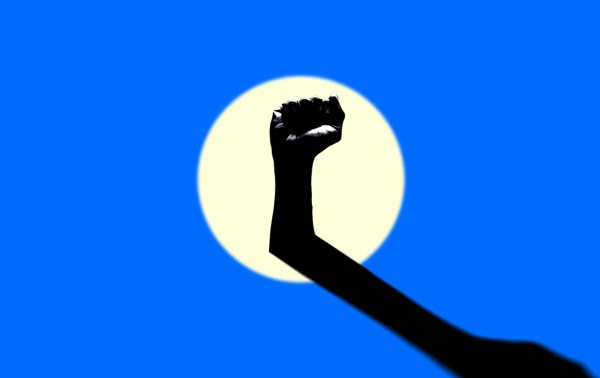Millennial moms on social media—which is to say, basically all of us—see endless memes and complaints about the “mental load,” which, per one internet source, is “a discrete category of family work, which entails the planning, schedule and remembering of domestic chores and events.” Don’t get me wrong, I like a good meme, and if you can’t complain a little about motherhood, what’s the point of the internet? Still, there is something about these memes that might give one pause. One comic that circulated in December on Instagram depicted a mom dressed as Santa carrying a heavy sack with the words “UGH” on it. The caption? “The mental load of motherhood.” Around the same time, publications ran essays with titles like: “Real Talk: Moms Share How They Deal With the Mental Load of the Holidays” and “Moms Fight Back Against Holiday Mental Load.” Complaints about the mental load are also issued year-round, related to kids’ birthday parties, Easter, school spirit days, and Halloween.
I appreciate efforts to make the invisible work of motherhood, especially when it comes to celebrations, visible. It is quite a lot of work to host parties and birthdays, and to ready your family for celebrations outside the home. Likewise, thinking hard about the division of household labor is certainly worthwhile. But I’m concerned about the implication that the work of celebrating should primarily be perceived as a burden. Why, one might wonder after scrolling through these memes, are moms even doing all this work? What kind of chump decides to voluntarily carry a heavy sack around?
In other words, it seems like we fail to acknowledge that, yes, celebrations are work—but they are meaningful work that helps tie families together and build community with friends and neighbors.
Many of these celebrations are an important part of cultural transmission, or per one definition, “the way values, knowledge, and practices that are prevalent in one generation are transferred to the next generation.” As Rebecca Gale, a writer and policy analyst with the Better Life Lab at the think tank New America, told me, she takes time — and sometimes, time off work — to celebrate the Jewish holidays with her children, not primarily for their religious significance, but to familiarize her children with their cultural heritage. “It’s a privilege to be able to have a table full of people and food—and it’s not one I take for granted,” she said. Gale was profoundly influenced by the absence of these celebrations during COVID. “I want my kids to see that I spend time on this because I value it,” Gale told me. Indeed, with childhood mental health issues on the rise, it seems important to give kids a sense of belonging and continuity with past generations, and research shows that kids who get to know their family history have a healthier sense of identity.
Connecting younger generations to their past is important on its own, but celebrations beyond the family help build important real-world social connections that are sorely needed. In a recent essay, Derek Thompson, a writer at the Atlantic, explored in depth the isolation of Americans. He wrote that the breakdown of community ties—including the lack of dinner parties and religious rituals—has contributed to our wider social dysfunction, as “[t]he village is our best arena for practicing productive disagreement and compromise—in other words, democracy.” Thompson noted: “[I]t’s no surprise that the erosion of the village has coincided with the emergence of a grotesque style of politics, in which every election feels like an existential quest to vanquish an intramural enemy.” Contra this social disintegration, I remember my great-aunt owned a church cookbook that contained recipes to feed 200 people. What a weapon against loneliness!
Understanding celebrations as work also means understanding it as skilled work. Hosting involves many skills: cooking, planning, and cleaning. It also involves the skilled work of building personal relationships—not dissimilar from the work corporate professionals do in creating business networks. For this reason, it’s understandable that husbands and wives might have different levels of proficiency; it’s not something you just know. Still, certainly not all such work either is or should be done by women. To take a stereotypical example, Mom might decorate the house for the Fourth of July, while Dad grills for a neighborhood BBQ. (Of course, nothing should stop a family from deciding Dad is the better decorator and Mom is the better griller!)
With this background, it is concerning that we do not value the work of hosting more. Christy Isinger, a writer and mom, told me that, “in organizing events in the past few years I’ve found that most people have a cavalier attitude to the amount of time and effort that goes into creating an event, which really speaks to their own inexperience in ever hosting or organizing.” Another writer and mom, Nadya Williams, agreed: “It’s striking to think how counter-cultural hosting celebrations has become,” she told me.
Still, there are signs that this failure to value the work of celebrations may be slowly changing; a recent viral essay, for example, argued that “Americans Need to Party More.” Recognizing this value doesn’t mean we all need to host a five-hour long, multi-thousand dollar kid birthday party at an expensive venue. Indeed, part of valuing the work of hosting may mean rejecting the perfect, over-the-top celebrations that pop up on social media. Just as having a loving home doesn’t require owning a mansion, throwing a good party doesn’t require creating an Instagram-worthy ambiance. Social media’s creation of unrealistic expectations surrounding hosting may (ironically) be contributing to the exhaustion also prominent on social media about the act of hosting. I myself served Thanksgiving this year on paper plates, and the only decorations were three mini pumpkins my kids bought and flowers brought by others. But as I put in the work to host, I was reminded of a G.K. Chesterton quote about birthdays, which I’ll paraphrase slightly: “The first fact about [a] celebration … is that it is a way of affirming defiantly, and even flamboyantly, that it is a good thing to be alive.”









Please note that we at The Dispatch hold ourselves, our work, and our commenters to a higher standard than other places on the internet. We welcome comments that foster genuine debate or discussion—including comments critical of us or our work—but responses that include ad hominem attacks on fellow Dispatch members or are intended to stoke fear and anger may be moderated.
With your membership, you only have the ability to comment on The Morning Dispatch articles. Consider upgrading to join the conversation everywhere.